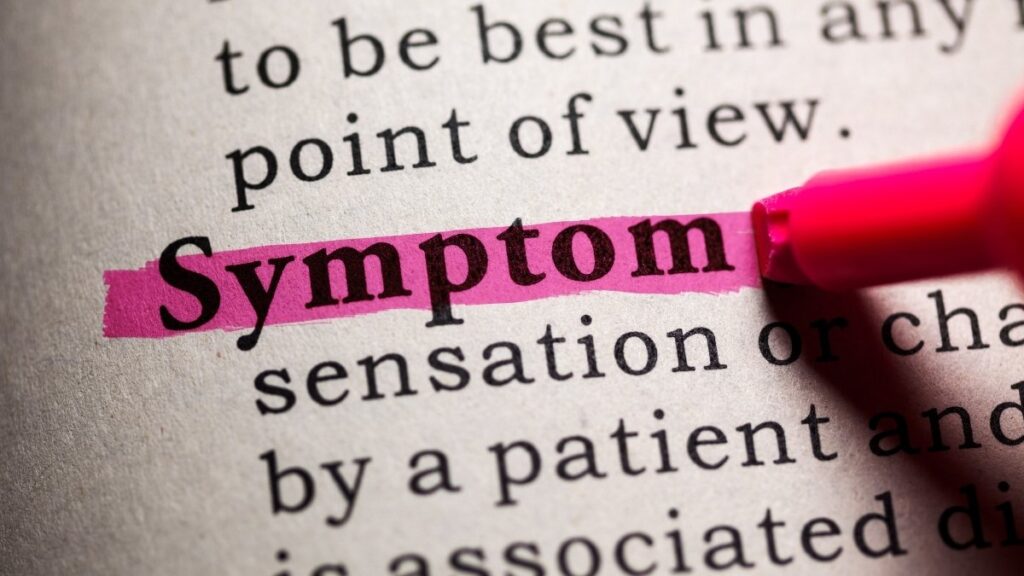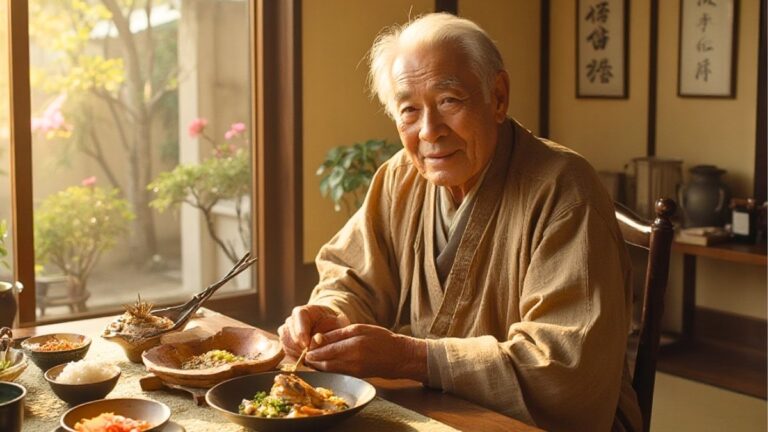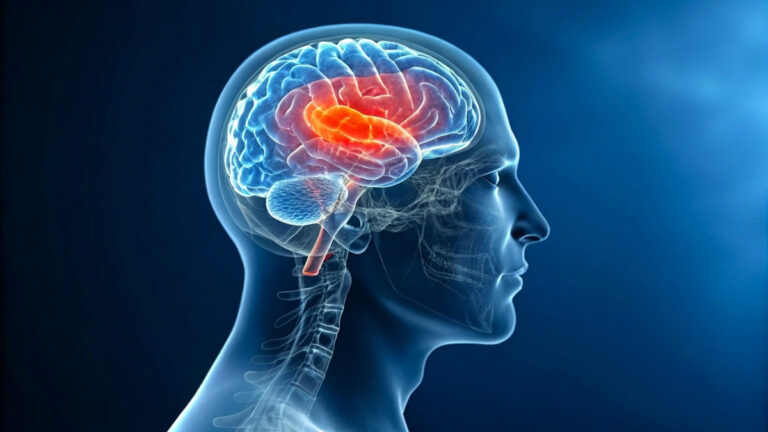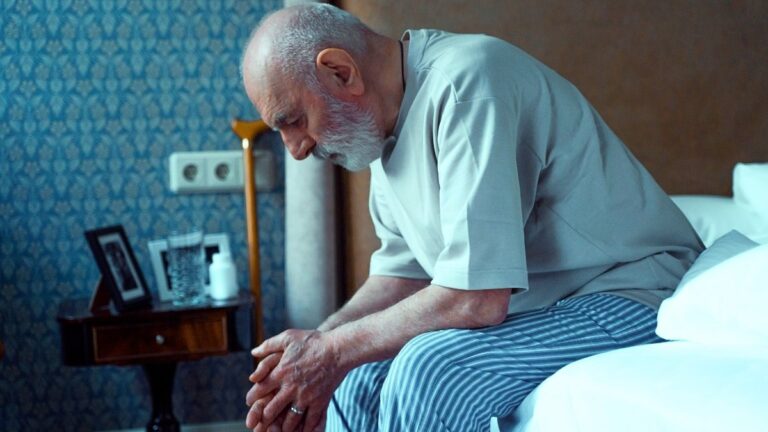Heart Attack Time Bomb? The 5 Mistakes Every Senior Makes (And How to Defuse Them)

Every 40 seconds, someone in America has a heart attack. For people over 65, the risk gets higher each year. But here’s the good news: most heart attacks can be stopped before they happen.
Your heart has worked hard for many years. Small daily choices can either help it or hurt it. The wrong choices add up over time. They create danger you cannot see. But the right choices protect your heart and save your life.
These nine simple changes can cut your heart attack risk by half. You don’t need special equipment or expensive treatments. You just need to know what to do and start doing it today.
#1. Medication Mixing
Many seniors take pills from different doctors. These doctors don’t always talk to each other. Your medicines can fight against each other in your body. Some raise your blood pressure. Others mess up your heart rhythm. Some cancel out the good effects of heart medicines. When medicines work against each other, they can cause a heart attack.
Your body processes medicine differently as you age. Your liver works slower. Your kidneys don’t filter as well. This means medicine stays in your blood longer. It can build up to dangerous levels. Even safe medicines become risky when mixed wrong.
Drug stores keep records of what you take. But if you use different stores, no one sees the full picture. One medicine might be safe alone. But mixed with others, it becomes deadly. Your pharmacist knows about drug interactions. They can spot problems your doctors miss.
Safety Tips:
- Keep a complete list of all medicines in your wallet
- Use only one pharmacy for all your prescriptions
- Ask your pharmacist to check all medicines twice a year
2. Get Better Sleep
Sleep fixes your heart every night. When you sleep deep, your heart rate slows down. Your blood pressure drops. Your body repairs damage to blood vessels. Without good sleep, your heart never gets to rest and heal.
Bad sleep creates inflammation in your body. This inflammation damages your arteries. It makes blood clots more likely. Poor sleep also raises stress hormones. These hormones make your heart work harder all day long. After weeks of bad sleep, your heart becomes weak and sick.
Most seniors need 7 to 8 hours of sleep each night. But getting older makes sleep harder. You might wake up more often. You might go to bed earlier but still feel tired. Pain, worry, and medicine can all steal your sleep. When you don’t sleep well, your heart attack risk doubles.
Safety Tips:
- Go to bed at the same time every night
- Keep your bedroom cool and dark
- Stop looking at screens one hour before bedtime
3. Control Your Stress
Stress kills hearts slowly. When you feel stressed, your body releases fight-or-flight chemicals. These chemicals make your heart beat faster. They raise your blood pressure. They make your blood stickier. Over time, stress wears out your heart like an old car engine.

Seniors face special kinds of stress. Money worries get worse on fixed incomes. Health problems pile up. Friends and family members get sick or die. You might have to take care of a spouse. All this stress builds up in your body. It creates inflammation that damages your heart.
Your body stores stress in your muscles and blood vessels. Tight shoulders and headaches are warning signs. High blood pressure is stress talking. Even small daily stresses add up. Traffic jams, loud noises, and family arguments all hurt your heart. Learning to manage stress can add years to your life.
Safety Tips:
- Take five deep breaths when you feel upset
- Walk outside for 10 minutes when stressed
- Set aside 15 minutes daily to worry, then stop thinking about problems
4. Know Heart Attack Warning Signs
Heart attacks don’t always cause crushing chest pain. In seniors, they often feel different. You might feel very tired for no reason. You might have trouble breathing. You might feel dizzy or sick to your stomach. Many people think these symptoms are just part of getting older. They ignore them until it’s too late.

Women have different heart attack symptoms than men. Women often feel jaw pain or back pain. They might feel nauseous or break out in a cold sweat. These symptoms seem like other problems. But they can mean your heart is in trouble. Knowing these signs can save your life.
Your body gives warning signals before a heart attack. You might feel weak during normal activities. Climbing stairs might make you short of breath. Your chest might feel heavy or tight. Some people feel like they have heartburn that won’t go away. Don’t ignore these warnings.
Safety Tips:
- Learn your personal risk factors for heart disease
- Time any chest discomfort – if it lasts 5 minutes, get help
- Keep aspirin nearby and know when to take it
5. Exercise the Right Amount
Too little exercise hurts your heart. Too much exercise also hurts your heart. The trick is finding the right amount. Sitting all day makes your heart muscle weak. Your blood vessels get stiff. Your blood doesn’t flow well. But suddenly doing hard exercise can shock an unprepared heart.

Your heart is a muscle that needs regular work to stay strong. But it also needs time to recover. Gentle, steady exercise is better than weekend warrior workouts. A 30-minute walk does more good than a once-weekly tennis match. Your heart likes routine and consistency.
As you age, your heart can’t handle sudden changes in activity. Starting a new sport without preparation can trigger a heart attack. But being afraid to move at all is also dangerous. The key is starting slow and building up gradually. Your heart will get stronger week by week.
Safety Tips:
- Start each day with 3 minutes of gentle stretching
- Take three 10-minute walks instead of one 30-minute walk
- Stay able to talk normally while exercising
6. Drink Enough Water
Water keeps your blood flowing smoothly. When you don’t drink enough, your blood gets thick like syrup. Your heart has to work much harder to pump thick blood. Thick blood also clots more easily. These clots can block arteries and cause heart attacks.

As you get older, you don’t feel thirsty as much. But your body still needs the same amount of water. Many seniors take water pills for blood pressure. These pills make you lose even more water. Hot weather, air conditioning, and heating all dry you out without you knowing it.
Your kidneys need water to clean your blood. Without enough water, waste builds up in your blood. This waste can damage your heart and blood vessels. Dark yellow urine means you need more water. Headaches and dizziness can also mean dehydration. Even mild dehydration makes your heart work 10% harder.
Safety Tips:
- Drink one full glass of water with each medicine dose
- Keep water bottles in every room you use
- Eat water-rich foods like oranges, cucumbers, and soup
7. Use Health Technology
Modern technology can save your heart. Smart watches can detect irregular heartbeats before you feel them. Pill reminder apps prevent dangerous missed doses. Blood pressure monitors at home catch problems early. But many seniors avoid this technology because it seems hard to learn.

Heart problems often start quietly. You might have an irregular heartbeat for months before feeling it. Home monitors can catch these problems when they’re still easy to fix. Apps can remind you to take medicine, track symptoms, and connect you with doctors. This technology is like having a nurse with you all the time.
Learning new technology takes effort. But the payoff is huge for your heart health. You don’t need to master everything at once. Start with one device or app. Get comfortable with it before adding more. Ask younger family members to teach you. Most community centers offer classes for seniors learning health technology.
Safety Tips:
- Ask a tech-savvy friend to help you 30 minutes each month
- Start with just one health app or device
- Take a senior-friendly technology class at your local community center
8. Stay Connected with People
Loneliness is as dangerous as smoking for your heart. When you feel isolated, your body creates inflammation. This inflammation damages your arteries. Lonely people have higher blood pressure and more stress hormones. Their hearts work harder and wear out faster.

Social connection works like medicine for your heart. Talking with friends lowers your blood pressure. Laughing releases chemicals that protect your heart. Even petting an animal can slow your heart rate. People with strong social ties live longer and have fewer heart attacks.
Many seniors become isolated without meaning to. Friends move away or pass on. Health problems make it harder to get out. Adult children live far away. But even small amounts of social contact help your heart. A weekly phone call or monthly lunch can make a big difference in your health.
Safety Tips:
- Schedule weekly phone calls with friends or family
- Join community groups based on your interests
- Consider getting a pet for companionship and daily care
#9. Eat Real Food
Food companies trick people into buying unhealthy products. They put “heart-healthy” on packages full of sugar and chemicals. They hide salt in bread, cereal, and soup. They take fat out of food and add sugar instead. Reading labels is the only way to know what you’re really eating.

Processed food creates inflammation in your body. This inflammation damages your blood vessels. Sugar spikes make your heart work harder. Too much salt raises blood pressure. Even foods that seem healthy can be full of hidden dangers. Fruit juice has as much sugar as soda. Granola bars often have more sugar than candy.
Real food doesn’t need fancy labels. An apple is heart-healthy without needing to say so on the package. Fresh vegetables, plain meat, and whole grains are naturally good for you. The more a food is processed, the worse it is for your heart. Shopping around the edges of the grocery store helps you find real food.
Safety Tips:
- Shop mainly around the outside edges of the grocery store
- Read ingredient lists instead of believing front-package claims
- Reduce salt slowly while adding herbs and spices for flavor
Final Words
Your heart has served you well for many years. Now it needs your help to keep working. Small changes in your daily life can prevent most heart attacks. You don’t need perfect health or expensive treatments. You just need to make better choices each day.
Start with one change that seems easiest. Maybe it’s drinking more water or going to bed earlier. Once that becomes a habit, add another change. Your heart will get stronger with each improvement. Remember, it’s never too late to start taking better care of your heart.
These nine steps can add healthy years to your life. They can keep you active and independent longer. Most importantly, they can prevent the heart attack that might otherwise be waiting in your future. Your heart is counting on you to make these changes. Start today.






